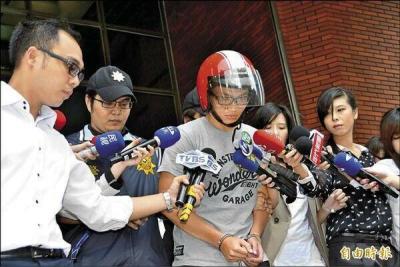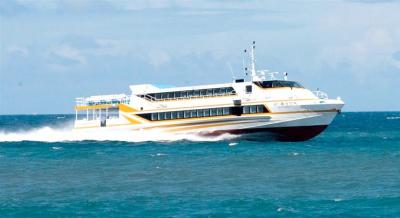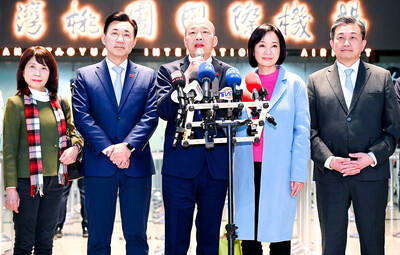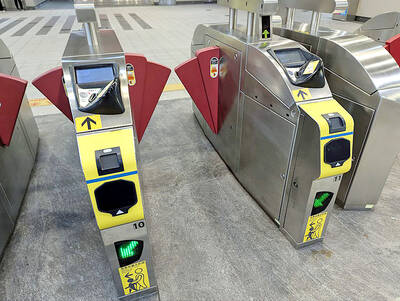The US government’s freeze on arms sales to Taiwan will have a number of consequences for both parties, former US deputy assistant secretary of state for East Asian and Pacific affairs Randall Schriver said yesterday.
Speaking to a gathering of the Taipei Foreign Correspondents Club in Taipei, Schriver said that any halt in weapons procurement was likely to have an exponential effect on Taiwan’s ability to defend itself.
Arms sales “are not something you can turn on or off like a spigot,” he said.
A prolonged arms freeze would also affect the ability of President Ma Ying-jeou’s (馬英九) government to negotiate with China on Ma’s key election platforms, such as increasing Taiwan’s international space and the signing of a cross-strait peace accord, he said.
The US, meanwhile, will have to deal with credibility issues if it refuses to follow through after offering and approving the sales of the systems.
Mark Stokes, Schriver’s colleague at the Project 2049 Institute think tank and a former country director for China and Taiwan in the Office of the US Secretary of Defense, also present at the talk, echoed Schriver’s remarks.
He said that the credibility of those in the US establishment that for years had accused Taiwan of not taking its own defense seriously was now being called into question, as the freeze had brought about a “reversal of roles.”
Stokes also said that Wednesday’s military helicopter crash in Taoyuan County had highlighted the importance of continually upgrading military equipment.
Asked whether the freeze could possibly extend into the term of the next US president, Schriver said the camps of both Republican candidate John McCain and Democratic nominee Barack Obama had made it clear to the Bush administration that they did not want to inherit such a situation.
He added that the best solution would be for the present US government to unblock the sales. A failure to do so would prove very costly for any new administration in terms of its relations with Beijing, as the last decade has seen China’s influence in the US capital increase tremendously, Schriver said.
He said that the combination of “highly skilled, articulate Chinese diplomats,” US corporations with interests in China, lobbying firms employed by Beijing and old China friends, such as former US secretary of state Henry Kissinger, made it difficult for the US government to pursue policies deemed favorable to Taiwan.
Commenting on the state of relations between Taipei and Washington, Schriver said that the nadir reached during former president Chen Shui-bian’s (陳水扁) term was not solely down to Chen, as actors in Washington had overestimated their understanding of Taiwan and contributed to the problems.
The cost of rebuilding ties with Taiwan would also be higher now that China has such a powerful presence, he added.
He said that although the Ma government had made a big effort to improve the cross-strait situation, what it was doing to strengthen ties with the US and Japan was still unclear.

Death row inmate Huang Lin-kai (黃麟凱), who was convicted for the double murder of his former girlfriend and her mother, is to be executed at the Taipei Detention Center tonight, the Ministry of Justice announced. Huang, who was a military conscript at the time, was convicted for the rape and murder of his ex-girlfriend, surnamed Wang (王), and the murder of her mother, after breaking into their home on Oct. 1, 2013. Prosecutors cited anger over the breakup and a dispute about money as the motives behind the double homicide. This is the first time that Minister of Justice Cheng Ming-chien (鄭銘謙) has

Ferry operators are planning to provide a total of 1,429 journeys between Taiwan proper and its offshore islands to meet increased travel demand during the upcoming Lunar New Year holiday, the Maritime and Port Bureau said yesterday. The available number of ferry journeys on eight routes from Saturday next week to Feb. 2 is expected to meet a maximum transport capacity of 289,414 passengers, the bureau said in a news release. Meanwhile, a total of 396 journeys on the "small three links," which are direct ferries connecting Taiwan's Kinmen and Lienchiang counties with China's Fujian Province, are also being planned to accommodate

BITTERLY COLD: The inauguration ceremony for US president-elect Donald Trump has been moved indoors due to cold weather, with the new venue lacking capacity A delegation of cross-party lawmakers from Taiwan, led by Legislative Speaker Han Kuo-yu (韓國瑜), for the inauguration of US president-elect Donald Trump, would not be able to attend the ceremony, as it is being moved indoors due to forecasts of intense cold weather in Washington tomorrow. The inauguration ceremony for Trump and US vice president-elect JD Vance is to be held inside the Capitol Rotunda, which has a capacity of about 2,000 people. A person familiar with the issue yesterday said although the outdoor inauguration ceremony has been relocated, Taiwan’s legislative delegation has decided to head off to Washington as scheduled. The delegation

TRANSPORT CONVENIENCE: The new ticket gates would accept a variety of mobile payment methods, and buses would be installed with QR code readers for ease of use New ticketing gates for the Taipei metro system are expected to begin service in October, allowing users to swipe with cellphones and select credit cards partnered with Taipei Rapid Transit Corp (TRTC), the company said on Tuesday. TRTC said its gates in use are experiencing difficulty due to their age, as they were first installed in 2007. Maintenance is increasingly expensive and challenging as the manufacturing of components is halted or becoming harder to find, the company said. Currently, the gates only accept EasyCard, iPass and electronic icash tickets, or one-time-use tickets purchased at kiosks, the company said. Since 2023, the company said it